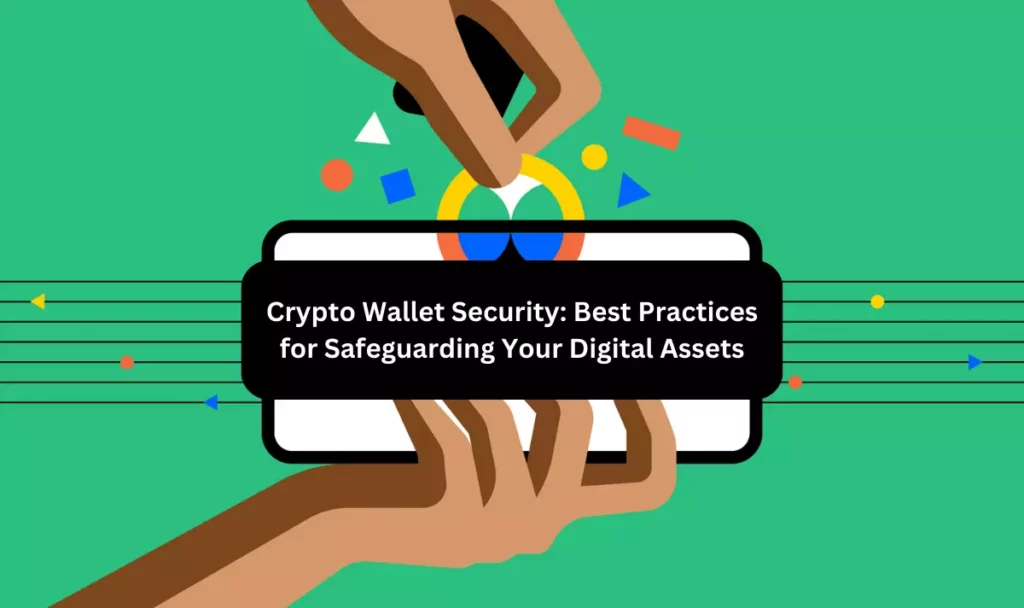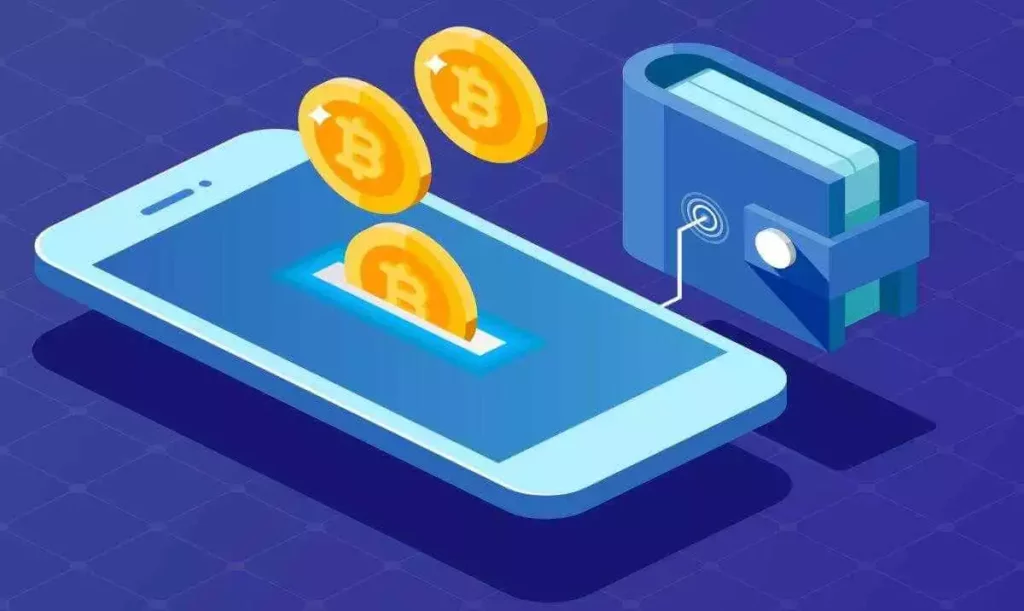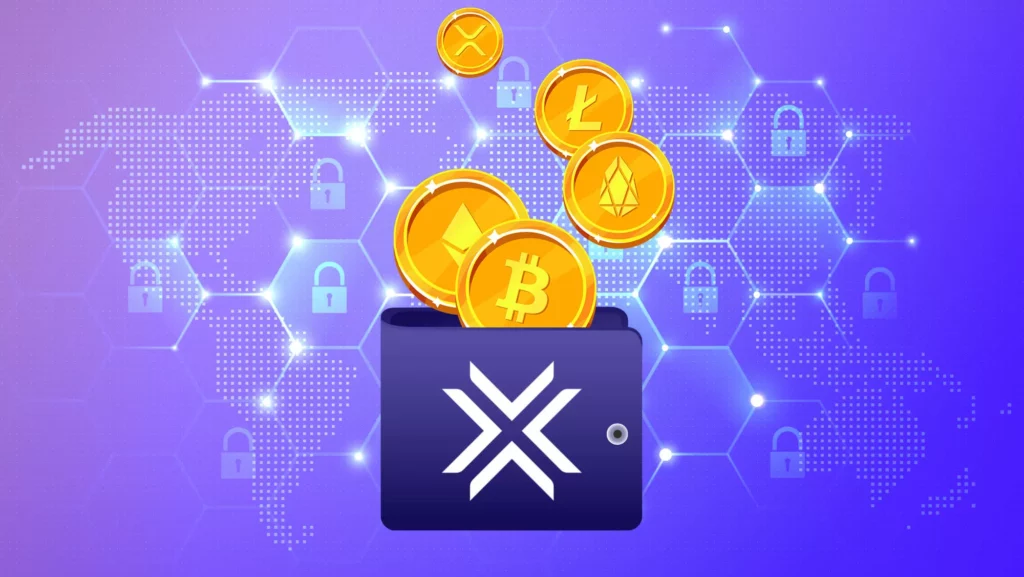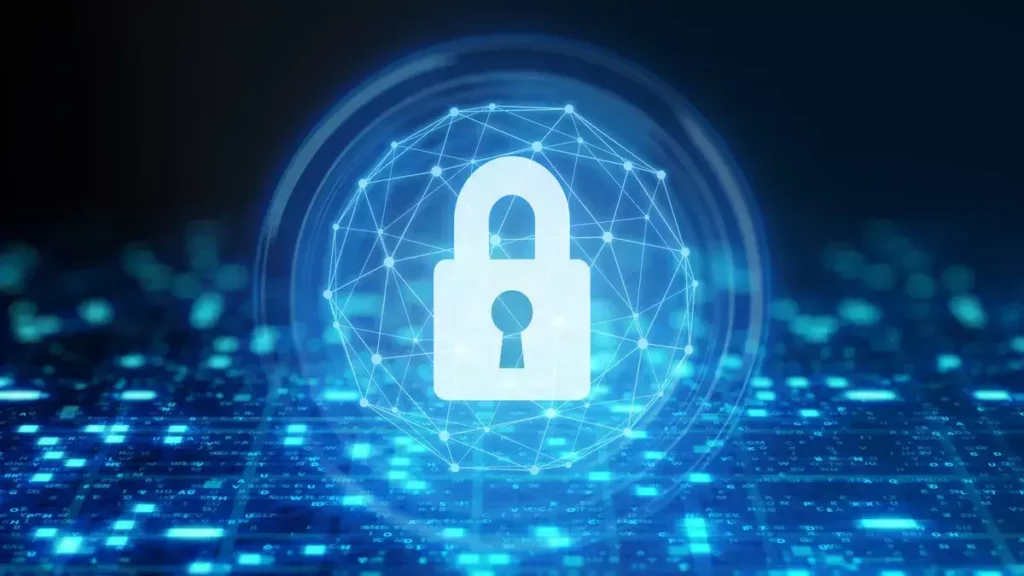
In today’s digital age, where cryptocurrencies are becoming increasingly popular, ensuring the security of your digital assets is of paramount importance. Crypto wallets are the primary means by which individuals store and manage their digital currencies. However, with the rise in cyber threats, it is crucial to adopt best practices to safeguard your crypto wallet and protect your investments. This blog post aims to provide you with valuable insights into crypto wallet security and outline the best practices you can implement to enhance the safety of your digital assets.
May you also like this: Crypto Gaming: How Blockchain Technology is Transforming the Gaming Industry
1. Understanding Crypto Wallets

Before delving into security measures, it’s essential to understand what a crypto wallet is and how it functions. A crypto wallet is a software application or hardware device that allows users to securely store, send, and receive digital currencies. It consists of a public key for receiving funds and a private key for accessing and authorizing transactions.
2. Choose a Reliable Wallet Provider
Selecting the right wallet provider is the first step towards ensuring the security of your digital assets. Opt for reputable and well-established providers that have a proven track record of security measures and positive user reviews. Look for wallets that offer robust encryption, two-factor authentication (2FA), and multi-signature functionality.
3. Implement Strong Passwords
Creating a strong and unique password is crucial for safeguarding your crypto wallet. Avoid using easily guessable passwords or reusing passwords from other accounts. Instead, employ a combination of uppercase and lowercase letters, numbers, and special characters. Consider using a reliable password manager to securely store and generate strong passwords.
4. Enable Two-Factor Authentication (2FA)
Enabling two-factor authentication adds an extra layer of security to your crypto wallet. With 2FA, you’ll need to provide a secondary verification method, such as a code generated by an authenticator app or sent to your mobile device, in addition to your password. This ensures that even if someone gains access to your password, they would still require the secondary authentication to gain entry.
5. Keep Your Software Updated
Regularly updating your wallet software is crucial to ensure that you have the latest security patches and bug fixes. Wallet providers often release updates to address any vulnerabilities that may have been discovered. By keeping your wallet software up to date, you reduce the risk of falling victim to known security flaws.
6. Backup Your Wallet

Creating regular backups of your crypto wallet is essential to protect your digital assets from accidental loss or hardware failure. Ensure that you securely store your backup in multiple locations, such as offline hardware devices or encrypted cloud storage. This way, even if your primary device is compromised or damaged, you can easily restore your wallet and access your funds.
7. Utilize Hardware Wallets
Hardware wallets, also known as cold wallets, offer an additional layer of security compared to software wallets. These physical devices store your private keys offline, making it extremely difficult for hackers to gain unauthorized access. Consider investing in a reputable hardware wallet for enhanced protection of your digital assets.
8. Beware of Phishing Attacks
Phishing attacks are a common method used by cybercriminals to trick individuals into revealing their wallet credentials. Be cautious of suspicious emails, messages, or links that prompt you to provide sensitive information. Always verify the authenticity of the source before sharing any personal details or accessing your wallet.
9. Secure Your Devices

Securing the devices you use to access your crypto wallet is crucial. Install reputable antivirus software and keep it up to date to protect against malware and other malicious threats. Avoid using public Wi-Fi networks when accessing your wallet, as they may be vulnerable to interception. Additionally, consider using dedicated devices for your crypto transactions to minimize the risk of exposing sensitive information.
10. Educate Yourself
Staying informed about the latest security practices and trends in the crypto world is essential for protecting your digital assets. Regularly educate yourself about potential risks, new attack vectors, and emerging security technologies. Engage with the crypto community, join forums, and follow reputable sources to stay updated and share knowledge with fellow crypto enthusiasts.
Conclusion
With the increasing value and popularity of cryptocurrencies, ensuring the security of your digital assets is paramount. By following these best practices for crypto wallet security, you can significantly reduce the risk of theft or loss. Remember to choose reliable wallet providers, implement strong passwords and two-factor authentication, keep your software updated, backup your wallet, and be cautious of phishing attacks. By staying vigilant and adopting these security measures, you can enjoy the benefits of cryptocurrencies while safeguarding your investments.
u003cstrongu003eCan I use the same password for multiple crypto wallets?u003c/strongu003e
No, it is not recommended to use the same password for multiple crypto wallets. Each wallet should have a unique and strong password to prevent unauthorized access.
u003cstrongu003eAre hardware wallets immune to hacking?u003c/strongu003e
While hardware wallets provide enhanced security, they are not entirely immune to hacking. However, their offline storage and additional security measures make them significantly more secure compared to software wallets.
u003cstrongu003eWhat should I do if I suspect my wallet has been compromised?u003c/strongu003e
If you suspect that your wallet has been compromised, act quickly. Contact the wallet provider’s support team, disable access to your wallet if possible, and follow their instructions for recovery and securing your funds.
u003cstrongu003eIs it safe to access my crypto wallet from a public computer?u003c/strongu003e
No, it is not advisable to access your crypto wallet from a public computer or any device that you do not fully control. Public computers may have malware or keyloggers installed, which can compromise your wallet’s security.
u003cstrongu003eCan I recover my crypto wallet if I lose my backup?u003c/strongu003e
Unfortunately, if you lose your wallet backup and do not have any other copies or recovery options available, it is unlikely that you will be able to recover your wallet and access your funds. This is why it is crucial to create and securely store multiple backups.

A business blog writer at the age of 19, Francis is a jack-of-all trades when it comes to writing. He specializes in content creation for businesses and blogs. With years of experience under his belt, he’s able to provide both written and video content that will engage readers and viewers alike!












